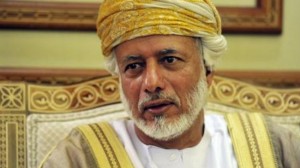 TEHRAN (FNA)- Omani Foreign Minister Youssef Bin Alawi Bin Abdullah underlined that reinvigoration of friendly relations with Iran, as an important country in the region, will be to the benefit of all Arab Nations of the Persian Gulf.
TEHRAN (FNA)- Omani Foreign Minister Youssef Bin Alawi Bin Abdullah underlined that reinvigoration of friendly relations with Iran, as an important country in the region, will be to the benefit of all Arab Nations of the Persian Gulf."It is not in the interests of the Persian Gulf Cooperation Council (PGCC) countries to grow united against a state like Iran," the top Omani diplomat said in an interview with Asharq Al-Awsat.
"We believe that relations between Iran and the PGCC Arab nations contain some tensions because of the disparity in views on regional issues. It is difficult for any country to avoid these tensions under the current circumstances. But there is protection in utilizing diplomacy during times of tensions," the Omani foreign minister went on to say.
Youssef Bin Alawi has been his country�s top diplomat since 1982 and is the only PGCC foreign minister who is not a member of his country�s ruling family.
The PGCC includes Qatar, Oman, Kuwait, Saudi Arabia, Bahrain and United Arab Emirates.
Meantime, Muscat is hosting a vital meeting between representatives of Iran and the Group 5+1 (the five permanent members of the UN Security Council and Germany) over Tehran�s nuclear program.
Youssef Bin Alawi, in the interview, voiced his country's satisfaction in the progressive trend of nuclear talks between Iran and the Sextet of world powers, and said, "There is agreement between all parties of the talks that the meeting should be sponsored by Oman."
Iranian Foreign Minister Mohammad Javad Zarif, EU Foreign Policy Chief Catherine Ashton and US Secretary of State John Kerry are scheduled to have a trilateral meeting in Muscat later today, whose agenda includes preparing the ground for the upcoming meeting between Tehran and the six major world powers.
Iran and the six major world powers have already held 8 rounds of nuclear negotiations after inking an interim agreement in Geneva on November 24, 2013, and have less than three weeks time to strike a final deal before the November 24 deadline.
Tehran and the six powers have already held seven rounds of talks in Vienna, and one more round in New York and on the sidelines of the UN General Assembly. They are now preparing for their 9th round of negotiations due to be held in Masqat, Oman, on November 11.
The Geneva agreement took effect on January 20 and expired six months later on July 20. In July, Tehran and the six countries agreed to extend negotiations until November 24 after they failed to reach an agreement on a number of key issues.
By Fars News Agency
The Iran Project is not responsible for the content of quoted articles.










